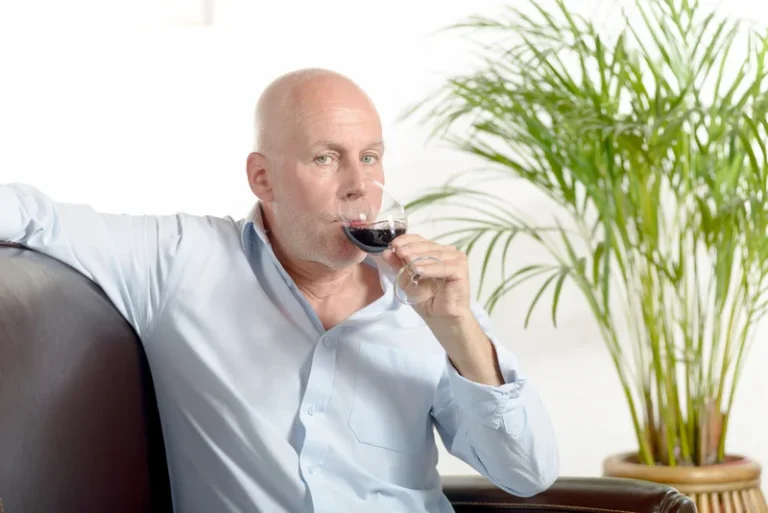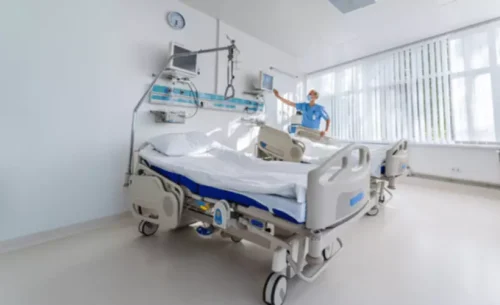
A whiff of cigarette smoke, watching people sip cocktails in a bar or restaurant, or a couple locked in an erotic embrace are reminders that seem to be everywhere in the early stages of quitting. Understanding what might trigger you to relapse as well as having a plan in place for these triggers are the first steps toward prevention. Here are five https://ecosoberhouse.com/ common relapse triggers you may want to discuss with your therapist or counselor. Creating a plan for how to act when you encounter these triggers can be very helpful. Relapse triggers are social, psychological, and emotional situations and events that may lead an addicted person to seek out their substance of choice and ultimately relapse.
Overconfidence in Recovery
- These people can help keep you accountable, encourage your recovery, and share their experiences as well.
- Getting back on track quickly after a lapse is the real measure of success.
- The cognitive challenge is to indicate that negative feelings are not signs of failure, but a normal part of life and opportunities for growth.
- “In animal studies, we infused mice with very low numbers of CAR T cells and found that weren’t able to clear the cancer,” Rashidian relates.
Triggers can be difficult, but their impact can be fleeting with the right coping systems in place. Explore the link between ADHD and addiction and learn treatment strategies for managing them with The Recovery Team. Remember, practice makes perfect, so be persistent with yourself as you learn to use these techniques effectively.
Steps to Avoid Physical Relapse

Addiction happens because the use of drugs or alcohol makes a person feel better in some way. Although someone in recovery knows that their addiction was harming themselves and those around them, it’s fairly types of relapse triggers common to view past substance abuse through rose-colored glasses. Some people experience a whirlwind of emotions when seeing old friends and loved ones, which can trigger the desire to have a drink.
The Stressors Of Daily Life
Furthermore, long-term sobriety fosters healthier relationships with family, friends, and loved ones, enabling individuals to rebuild trust and establish a critical support system. Relapse prevention strategies involve maintaining recovery from addiction or harmful behaviors. One approach is identifying triggers, such as stress or social situations, and developing coping skills to manage them effectively. Another method involves creating a strong support network, including friends, family, or support groups, to provide encouragement and accountability. Identifying warning signs of relapse involves being aware of key emotional, mental, and behavioral indicators.
In order to avoid future relapse, it is crucial to identify and understand the warning signs of relapse. This includes recognizing key emotional, mental, and behavioral indicators, such as negative emotional responses, a change in attitude or behavior, and self-imposed isolation. Additionally, developing healthy coping skills through cognitive therapy and mind-body relaxation techniques can help prevent relapse.
Cravings and Relapse Prevention

When individuals do not change their lives, then all the factors that contributed to their addiction will eventually catch up with them. 1) Clients often want to put their addiction behind them and forget that they ever had an addiction. They feel they have lost part of their life to addiction and don’t want to spend the rest of their life focused on recovery. In the second stage of recovery, the main task is to repair the damage caused by addiction [2]. Clinical experience has shown that this stage usually lasts 2 to 3 years. If you are facing chronic pain, reach out to your recovery center, if you haven’t already.

During treatment, relapse prevention programs may be incorporated as part of the overall treatment plan. This can include education on triggers, coping mechanisms, and developing a plan for maintaining sobriety. In addiction, relapse occurs when a person resumes drug or alcohol use after a period of sobriety. Relapse usually results from a mix of psychological, physical, and environmental triggers. While it is a common part of the recovery process, it can lead to dangerous behaviors that may harm both the relapsing individual and their loved ones. This could include family, friends, sponsors or other members of your addiction recovery community, just to name a few people.
You may want to let your loved ones know what you’re going through and how you plan on coping. When you face triggers, your support system can help you quickly change your environment. Also, writing down your thoughts, feelings, and experiences in a daily journal could help you identify trends, events, or stimuli that lead to triggers. Experiencing triggers can affect your emotional state and may increase the desire to use substances again.

Exposure to Substances
- There are different models and techniques to include in your relapse prevention plan.
- Understanding the relapse process, common warning signs, and the importance of maintaining balance can significantly contribute to effective addiction treatment.
- A person’s support system may also play an important role in recovery and the avoidance of relapse.
- By developing healthy coping strategies, building a strong support network, and maintaining a proactive attitude toward recovery, you can overcome the obstacles that may lead to relapse.
- Let’s explore these essential elements that form the foundation of a successful relapse prevention plan.
- You can prevent this by keeping yourself in check and staying humble through the recovery process.